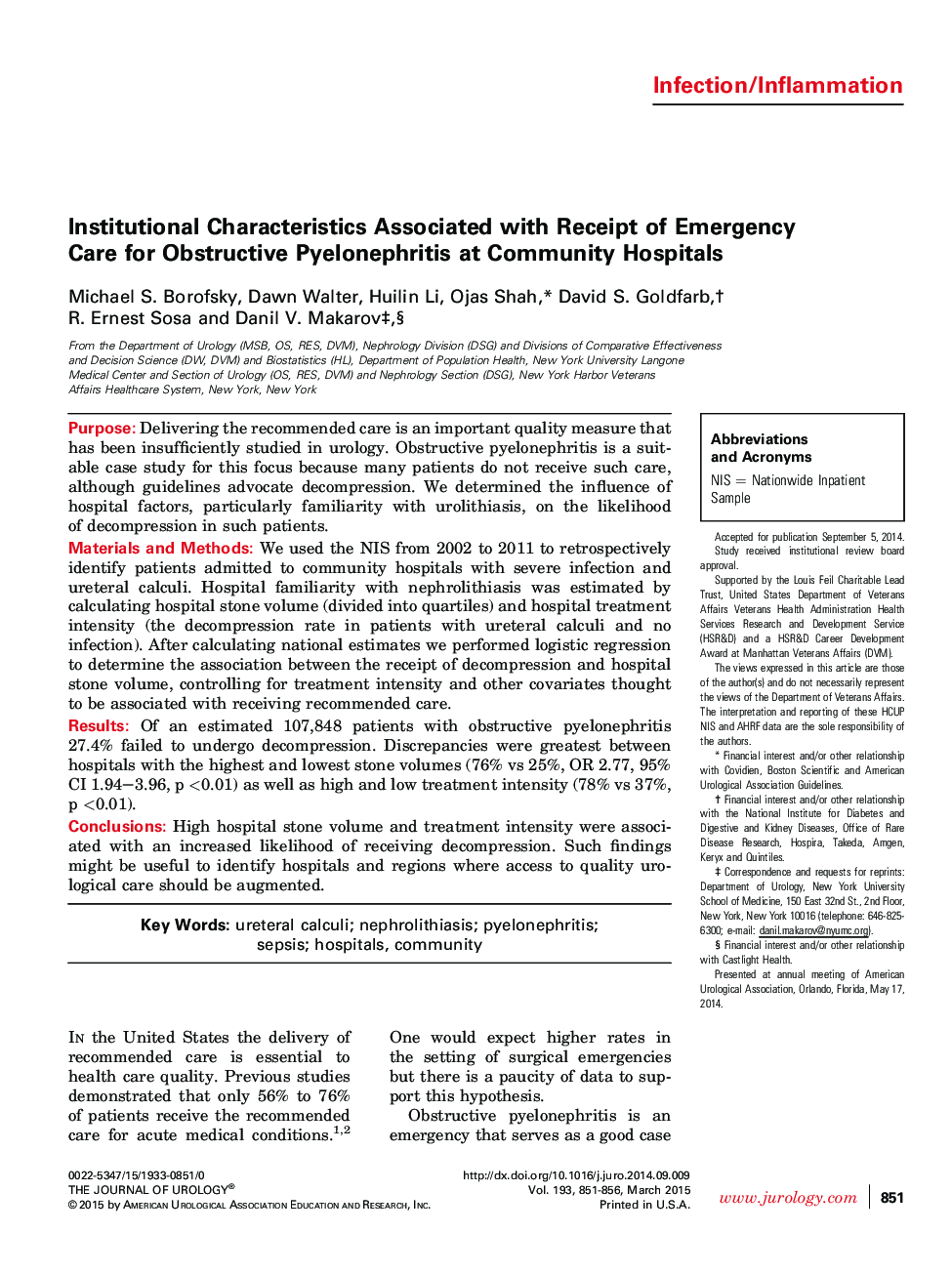| Article ID | Journal | Published Year | Pages | File Type |
|---|---|---|---|---|
| 3859435 | The Journal of Urology | 2015 | 6 Pages |
PurposeDelivering the recommended care is an important quality measure that has been insufficiently studied in urology. Obstructive pyelonephritis is a suitable case study for this focus because many patients do not receive such care, although guidelines advocate decompression. We determined the influence of hospital factors, particularly familiarity with urolithiasis, on the likelihood of decompression in such patients.Materials and MethodsWe used the NIS from 2002 to 2011 to retrospectively identify patients admitted to community hospitals with severe infection and ureteral calculi. Hospital familiarity with nephrolithiasis was estimated by calculating hospital stone volume (divided into quartiles) and hospital treatment intensity (the decompression rate in patients with ureteral calculi and no infection). After calculating national estimates we performed logistic regression to determine the association between the receipt of decompression and hospital stone volume, controlling for treatment intensity and other covariates thought to be associated with receiving recommended care.ResultsOf an estimated 107,848 patients with obstructive pyelonephritis 27.4% failed to undergo decompression. Discrepancies were greatest between hospitals with the highest and lowest stone volumes (76% vs 25%, OR 2.77, 95% CI 1.94–3.96, p <0.01) as well as high and low treatment intensity (78% vs 37%, p <0.01).ConclusionsHigh hospital stone volume and treatment intensity were associated with an increased likelihood of receiving decompression. Such findings might be useful to identify hospitals and regions where access to quality urological care should be augmented.
